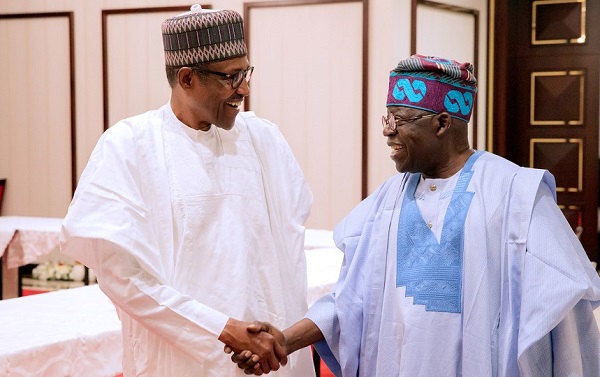Start Total Christian Certification Course Now
Alade Rotimi-John
Rave reviews, ingenious repartee, angry disputations, frenzied denunciation of alleged untruths or mis-statement, contemptuous dismissal of chronological inexactitude and a general paroxysm of passion have expectedly greeted a book that has made saints of gnomes or persons otherwise considered unworthy of the highly eulogistic account of their wondrous deeds.
Akande has been more enamoured of the Tinubu methods than he is appreciative of their ensuing results. The real authority of political practice, Akande has submitted, is to be found in Tinubu’s political pedagogy. The larger strengths and weaknesses in the Tinubu and, to a lesser extent, President Muhammadu Buhari’s methods are really quite similar, Akande concludes. One is struck by the great resistance to change in procedure and practice engendered by the underlying emphasis on both sides respecting fundamentals. The credo of the APC regarding the 2015 general elections was rendered in mellifluous verbiage of “Change!” Many practitioners of politics in Nigeria have come to perceive Tinubu and APC as instinctively opposed to change even as the duo seldom concern themselves about the broad aspects of public policy. In one breath, Tinubu is gamely. However, blinded by political ambition, he is unable to understand the gridlock dynamics, for instance, of a Muslim-Muslim presidential ticket in a plural society or in a situation of an upbeat religious division. The conservatism in the upper reaches of the APC has been further revealed as the influence of powerful members (some of them more powerful than the party at convention) over and above the inhibiting or civilising modus of a fellow-feeling ethic, fairness and the imperative of peaceful co-existence in a sorely-divided political milieu.
Baba Akande’s participation in all these has extravagantly earned him the unflattering accolades of persons whose pronouncement concerning him may not be believed on account of a proverbial character or credibility deficit. Tinubu has said of Akande: “Chief Akande is such a person with whom our lives are better because of the selfless public and private contribution he has made to this national family.” This remark is in reference to a family of which 200 million Nigerians are no members or cannot belong to. So Akande’s leadership is sectarian or parochial to the extent that it is selfless and actuated only to the protection of the interests of the “national family.” A bold or intrepid member of the “national family,” Tinubu is easily the most daring of all the ranking members of the family. When some three weeks ago, the Pentecostal Fellowship of Nigeria warned that it would not brook a Muslim-Muslim presidential ticket respecting the 2023 presidential election, it was reasoned that the group had chanced upon Tinubu’s rumoured decision to pick a fellow Muslim to run with him in the likely event that he secures the APC nomination to run as its flag bearer. Isa Pantami, the roundly-beleaguered Minister of Communication and Digital Economy has been reportedly projected as Tinubu’s running mate. A Sheikh or Islamic clergy, Pantami is reputed to belong to a fire-hitting fundamentalist creed of Islam. But Tinubu is not dismayed by a possible backlash of a decidedly unbalanced scale respecting the Nigerian political firmament. Tinubu appears ready to take on a sea of troubles regarding attitudes or actual challenge of his choice first, of an insensitive political consideration and second, of an utterly controversial mullah as deputy.
Even as Tinubu has missed the opportunity of a forthwith confirmation or denial of Akande’s claim that he bankrolled the construction of Adebanjo’s house, Tinubu is honour-bound to put the matter to rest by making a public statement to clear the mist in the interest of a confused general public.
• Rotimi-John is a lawyer and public affairs commentator.















